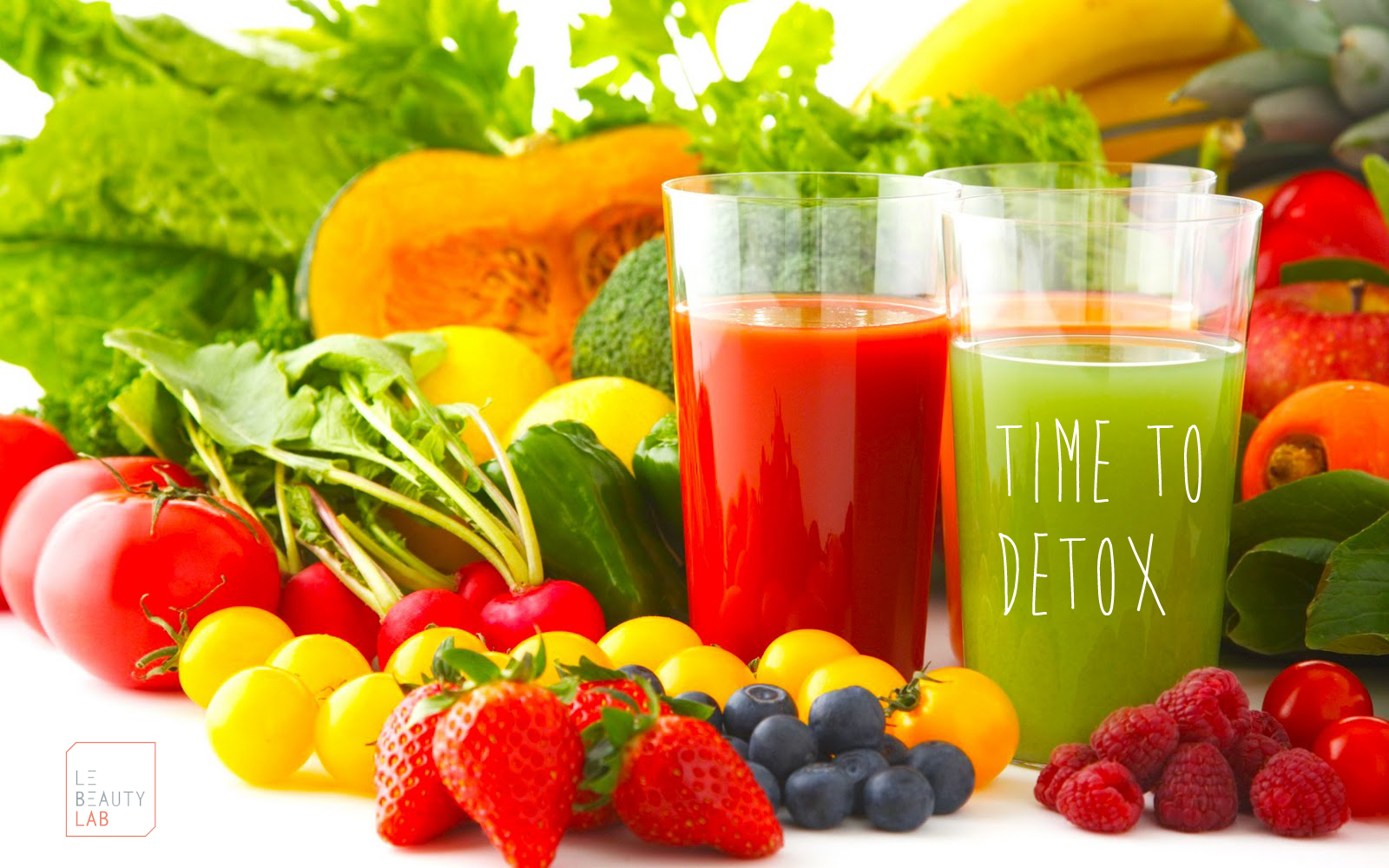 What is fermentation and why is it good for us?
What is fermentation and why is it good for us?
Recent studies suggesting that fermented foods including yogurt and pickled vegetables could help to treat anxiety, it is clear that, for our health interests alone, fermentation is here to stay.
It may seem as if everyone’s jumping on the fermentation bandwagon, from chefs to health experts, but far from being just another foodie trend, this process has been around for centuries.
The only difference today is that food is being fermented not only to last longer and taste better but because more and more research shows it also makes it healthier.
The fermentation processes encourage essential bacteria such as Lactobacilli and Bifidobacteria to flourish in the foods. This makes fermentation a good source of probiotics.
No matter how much you know about probiotics in fermented foods or not, it is important to make them a part of your daily (or at least weekly) diet. Here is the list of 8 fermented foods with a source of good and friendly bacteria for your body:
Kefir
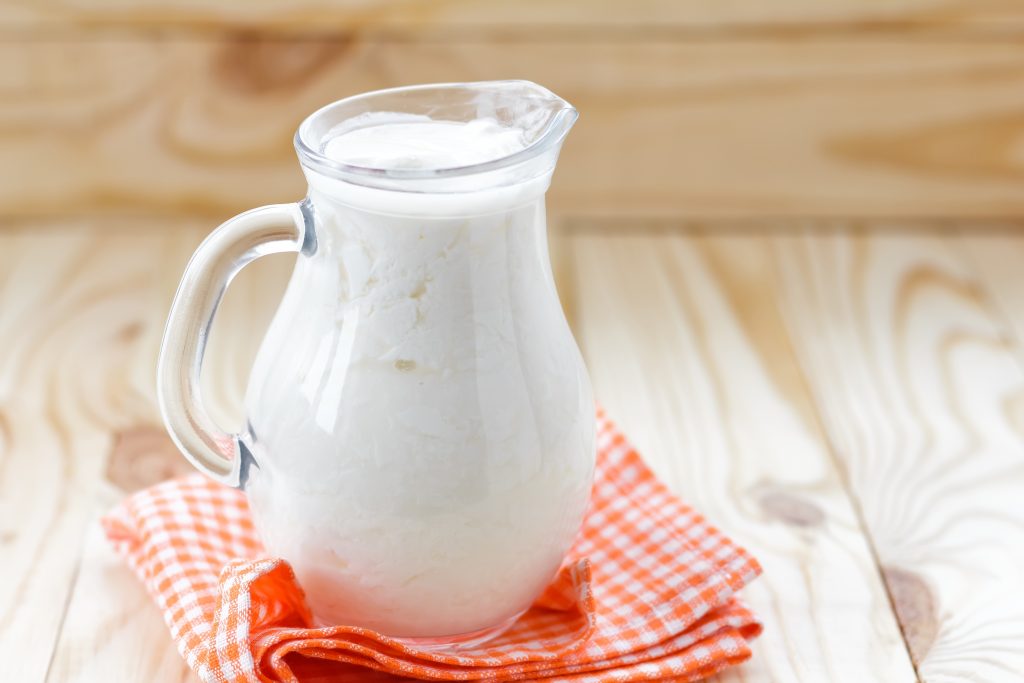
Kefir is a fermented milk product (cow, goat or sheep milk) that tastes like a drinkable yogurt. Kefir benefits include high levels of vitamin B12, calcium, magnesium, vitamin K2, biotin, folate, enzymes and probiotics. It boots immunity, heals irritable bowel disease, builds bone density, fights allergies, kills candida and improves digestion.
Tempeh
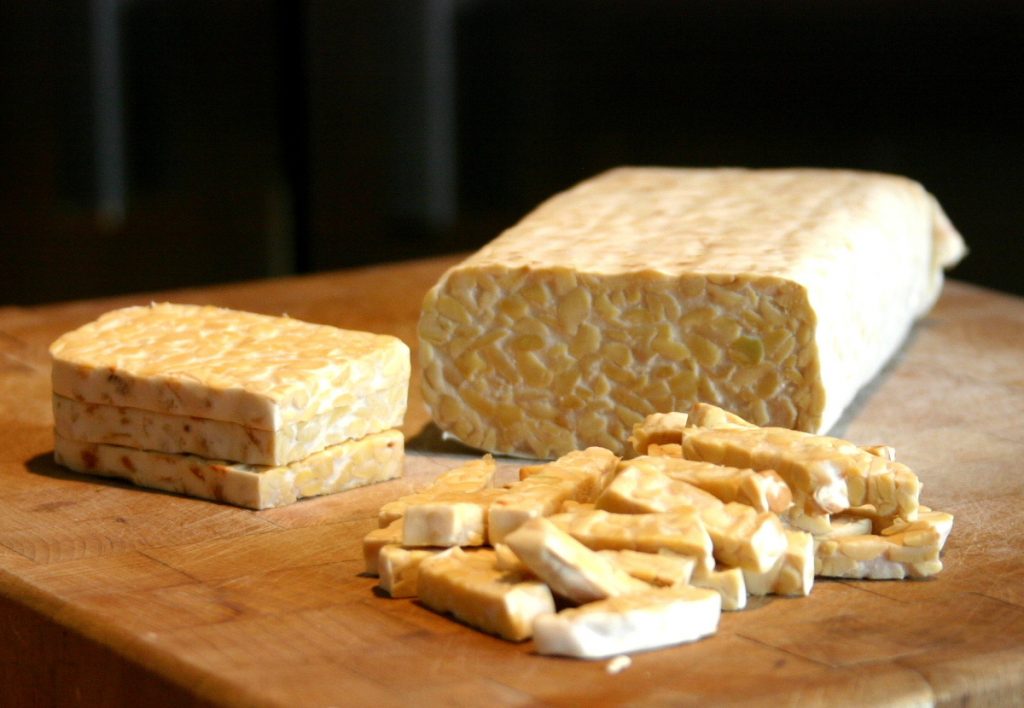
Tempeh is made from naturally fermented soybeans. It is made by adding soybeans with a tempeh starter (which is a mix of live mold). When it sits for a day or two, it becomes a cake-like product. Tempeh contains the essential amino acids, so it is a complete source of vegetarian protein. It also reduces cholesterol, increases bone density, reduces menopausal symptoms, promotes muscle recovery and has the same protein quality as meat.
Here is a tempeh steak recipe by Sushila Mahtani
Miso
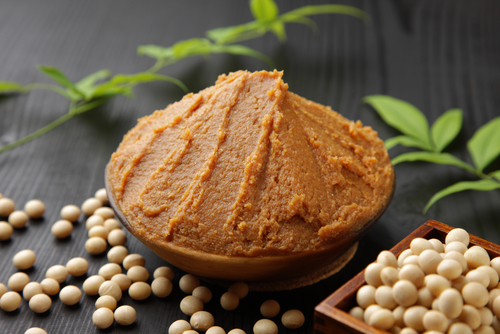
Miso is a fermented paste made from barley, rice or soybeans that are fermenting with koji (a type of fungus). It adds a nice umami flavor to dishes. Miso has anti-aging properties and helps to maintain healthy skin. It also boosts the immune system, lowers the risk cancer, improves bone health and promotes a healthy nervous system.
Kombucha

Made from tea, clean water, sugar, yeast and bacteria, kombucha has become popular for its probiotic qualities. It contains a colony of bacteria and yeast that are responsible for initiating the fermentation process once combined with sugar. After being fermented, kombucha becomes carbonated and contains vinegar, B-vitamins, enzymes, probiotics and a high concentration of acid (acetic, gluconic and lactic). Drinking kombucha improves digestion, helps with weight loss, increases energy, detox the body, and supports immune system.
Sauerkraut

This traditional food is made from fermented cabbage, water, and salt. The sour taste comes from lacto-fermentation, or the breakdown of lactose by the probiotic bacteria. It is rich with dietary fiber, vitamin A, vitamin C, vitamin K and B vitamins. Sauerkraut is also a great source of iron, copper, calcium, sodium, manganese and magnesium that will help to boost digestive health, aid circulation, fight inflammation, strengthen bones and reduce cholesterol levels.
Pickles

Pickles contain a ton of vitamins and minerals, plus antioxidants and gut-friendly bacteria. They are characteristically low in fat and calories. Pickles are also high in vitamin K; one spear supplies 14 mcg or 15 percent of your daily requirement.
At its simplest, the fermentation of vegetables works as follows: vegetables are soaked in salt water or preferably their own juice; this allows for the growth of bacteria; these bacteria eat the vegetable’s sugars; as a result, they produce lactic acid which has a sour/tart/funky taste, depending on pH levels and palate.
This is called lacto-fermentation and is the most common type of fermentation.
Kimchi

These spicy Asian fermented vegetables have been known to improve cardiovascular and digestive health. It has high levels of antioxidants that reduce the risk of serious health conditions such as cancer, diabetes, obesity and gastric ulcers. Extensive research indicates it contributes to colon health, lower cholesterol, better thinking, a stronger immune system, healthy skin, and weight loss.
Yogurt
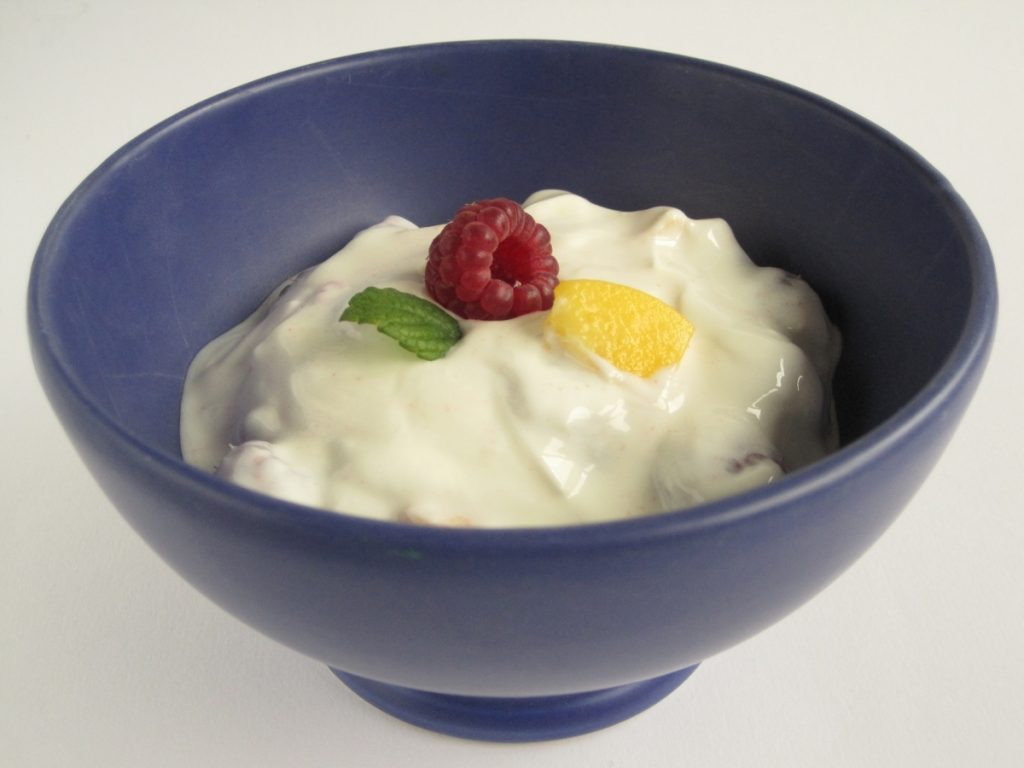
Yogurt has many benefits, mostly due to its rich probiotic content. It is often associated with better overall diet quality, healthier metabolic profiles, healthier blood pressure and increased triglyceride levels.
Learn how to set yogurt at home >>
Coconut Yogurt by Vasanthi Ram
Soya Milk Yogurt by Anuradha Verma >>




